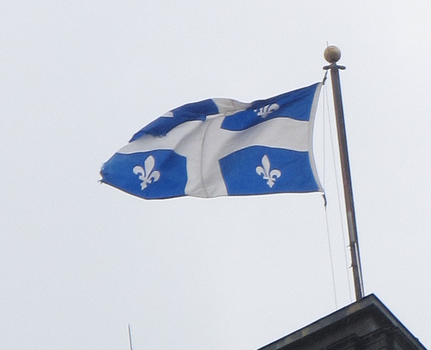The education of Quebec students may have a stronger focus on the history of the sovereignty movement and fewer early English language classes based on comments recently made by Quebec’s education minister.
In an interview originally published in Le Soleil, the Parti Québécois’ Education Minister Marie Malavoy said that she wants to hold off on the previous Liberal government’s plans to have intensive English language classes for sixth grade students in French elementary schools. Malavoy desires to strengthen the emphasis of Quebec sovereignty in history classes in order to highlight how it has shaped the province.
Shortly after the statements were made, the English Montreal School Board issued a press release in which it stated that “more than adequate attention is already being devoted to this dossier” with regards to the approach to Quebec nationalism used in secondary institutions’ curriculum.
Angela Mancini, the EMSB chairperson, believes that the curriculum sufficiently addresses national unity and Quebec. In a statement, Mancini said she consulted the school board’s pedagogical services department on the subject, and the material dedicated to Quebec sovereignty is “quite extensive.”
Katie Shea, a second-year McGill University education student majoring in history, says she is unsure of how the provincial government plans to change the curriculum.
“We learn it from the point of view of the French and no one else,” Shea said. “We don’t even learn the history of Canada, we only learn about Quebec.”
Shea went on to explain that all history lessons offer a certain bias and that if the curriculum were to change, secondary education teachers will have to emphasize the PQ’s opinions and ignore other aspects of Canadian history.
“What is the provincial government going to do, not talk about other provinces at all?” asked Shea.
Tina Christensen, a mother of two from the West Island, does not believe that the separatist movement needs any more attention in history class.
“I think it’s fine to make kids aware of it, but to actually teach it in schools?” said Christensen.”I think that political views should be the parents’ choice.”
Jean-Michel Nahas, spokesperson for the Commission scolaire Marguerite-Bourgeoys, said in a telephone interview that the change of plans for advanced English courses has had little impact on the school board as the previous government was slow to communicate the specific details they required to move forward.
“We decided that for the first year this program would be on a voluntary basis, and we had only one school who said [they] would like to try it,” said Nahas. “Last summer we were waiting for more information on the future of this program, … but we did not receive any other information.”
According to Nahas, the project proposed by the former Charest government was flawed since it provided few directives for interested schools. Since the CSMB has elementary schools located in the West Island where many students possess advanced English language skills, the school board was uncertain if they could modify the program to meet the skill levels of the students.
“Can we adjust the program for them as they already speak English and write in English?” said Nahas. “For that kind of question we had no specific answers.”
Until clear policies are in place and instructions are handed down by the PQ government, the CSMB will not be making any concrete plans.
